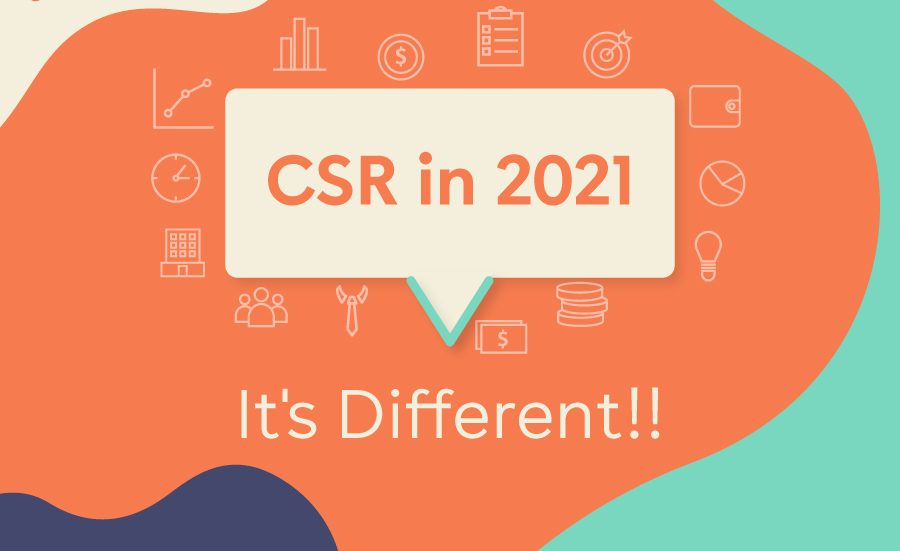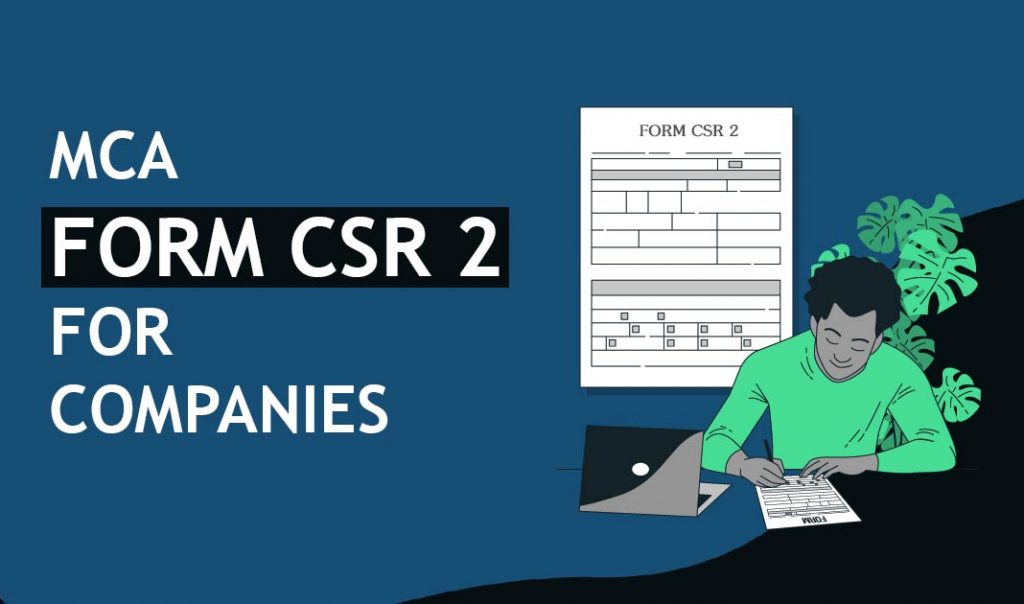

India became the first country to make it mandatory for certain companies to undertake philanthropic efforts towards social, environmental and human development concerns on April 1, 2014. The resultant Section 135 of the Companies Act stated that every company with a net worth of over ₹500 Crores, or a net profit of over ₹5 Crores in the previous financial year, or a turnover of over ₹1,000 Crores, will have to spend 2 per cent of their average net profit of the last three years on CSR activities.
Reciprocating the contribution of local communities in their success, key players of the Indian industry have been contributing to development in certain regions for a long time, often beyond the 2 per cent mandate issued by the CSR Policy. However, most companies failed to understand the CSR requirements and take responsibility for the communities within their periphery. As a result, when the CSR Policy was introduced, many organisations found the legislation to be too harsh and thought that it would be repealed soon after.
In the initial years of the Policy, many organisations were partially or entirely non-compliant. However, companies that complied with the Policy used their funds and innovative approaches to achieve ground-breaking developmental goals. Some CSR programmes even became model projects that were scaled further by the Government. Such programmes by compliant organisations motivated the Government to make the CSR Policy stringent to the point where companies could delay their social responsibility but never escape it.
The pandemic required the Government to collaborate with India Inc. to bring its core systems back to their original form. So, in 2021, the Government amended the CSR Policy to prohibit companies from using unspent CSR funds for business purposes or setting off past CSR expenses against future obligations. The amendment capped administrative overheads and involvement of international organisations to ensure programmes were beneficiary-focused. It also mandated the registration of executing agencies and impact assessment of CSR programmes.

The pandemic required the Government to collaborate with India Inc. to bring its core systems back to their original form. So, in 2021, the Government amended the CSR Policy to prohibit companies from using unspent CSR funds for business purposes or setting off past CSR expenses against future obligations. The amendment capped administrative overheads and involvement of international organisations to ensure programmes were beneficiary-focused. It also mandated the registration of executing agencies and impact assessment of CSR programmes.

Provisions in the 2021 amendment in the CSR Policy were more detailed and structured than the original. Besides clarifying basic concepts like the definition of CSR, CSR Policy and CSR Implementation, the amendment brought clarity to complex concepts in the Policy, reducing ambiguities that could be exploited by corporates, and introduced uniformity as it stated procedures to be followed. Naturally, companies that were partially or entirely non-compliant had to comply with the CSR Policy.
The COVID-19 pandemic severely impacted India Inc. during FY 2020-21. Therefore, amendments introduced in 2021 did not show an immediate effect on CSR compliance and efficiency. However, now that the Government has clogged the basic loopholes in the Policy pertaining to CSR compliance and efficient deployment of CSR funds, it is focusing on maximising the effectiveness of CSR programmes or ‘impact’ as commonly addressed in the Development Sector.
 A recent notification issued by the Ministry of Corporate Affairs (MCA) on February 11, 2022, made it compulsory for India Inc. to present a detailed report on CSR activities through an 11-page form. The notification, according to the MCA reads: The MCA vide its notification dated 11th February, 2022 has notified Companies (Accounts) Amendment Rules, 2022 which shall come into force from 11th February 2022. In the Companies (Accounts) Rules, 2014, after Rule 12 (1A) the following shall be inserted: “(1B) Every company covered under the provisions of sub-section (1) to section 135 shall furnish a report on Corporate Social Responsibility in Form CSR-2 to the Registrar for the preceding year (2020-2021) and onwards as an addendum to form AOC-4 or AOC-4 XBRL or AOC-4 NBFC (Ind AS), as the case may be: Provided that for the preceding year (2020-2021), Form CSR-2 shall be filed separately on or before 31st March, 2022, after filing form AOC-4 or AOC-4 XBRL or AOC-4 NBFC (Ind AS), as the case may be.”
A recent notification issued by the Ministry of Corporate Affairs (MCA) on February 11, 2022, made it compulsory for India Inc. to present a detailed report on CSR activities through an 11-page form. The notification, according to the MCA reads: The MCA vide its notification dated 11th February, 2022 has notified Companies (Accounts) Amendment Rules, 2022 which shall come into force from 11th February 2022. In the Companies (Accounts) Rules, 2014, after Rule 12 (1A) the following shall be inserted: “(1B) Every company covered under the provisions of sub-section (1) to section 135 shall furnish a report on Corporate Social Responsibility in Form CSR-2 to the Registrar for the preceding year (2020-2021) and onwards as an addendum to form AOC-4 or AOC-4 XBRL or AOC-4 NBFC (Ind AS), as the case may be: Provided that for the preceding year (2020-2021), Form CSR-2 shall be filed separately on or before 31st March, 2022, after filing form AOC-4 or AOC-4 XBRL or AOC-4 NBFC (Ind AS), as the case may be.”
The newly introduced Form CSR-2 (Report on Corporate Social Responsibility) is required to be filed by those entities that fall under the provisions of Section 135 of the Companies Act, 2013, i.e., the companies that are required to comply with the provisions of Corporate Social Responsibility (CSR).
This process is designed to provide the Government with an idea of a company’s CSR expenditure, programme execution and impact of CSR programmes by eligible companies across India. The regulation comes into immediate effect, and information related to FY 2020-21 has to be submitted by the end of March 2022.
Just like the introduction of the CSR Policy in 2014, this notification has brought mixed reactions from corporates all across India. Some CSR leaders find the increased reporting an additional burden to their organisations as some of the information the Government seeks is already part of the annual reports. On the other hand, some leaders feel that collecting CSR data through a uniform approach would allow the Government to analyse the information and leverage insights in a way that it would be able to enhance its developmental strategy.
The Government’s analysis of CSR information will enable robust policy formation at senior levels of the Government, which in turn will translate to swift and practical decision-making at the grassroots. Naturally, an eco-system like this will produce a swift and long-lasting impact on audiences that have remained in the dark for a long time. It will facilitate them and future generations to contribute to India’s growth story and benefit from it.
As the Co-founder of a leading EdTech social enterprise, ConnectEd Technologies, we have been working with some of the largest socially responsible corporates in the country to make quality education accessible to Government school students. Our focus has always been on the impact of our efforts on learning outcomes and the academic performance of the students. We have been collecting data points from a large number of beneficiary students, and their analysis has provided invaluable insights to us, our clients, and even the Government.


While some people might see Form CSR-2 as a replication of efforts, I am elated to see this added layer of compliance. It will make organisations accountable for the CSR programmes they plan and execute. It will also ensure that corporates seek more information regarding the impact of their activities. Reporting crucial insights from all over the country  emphasising programmes that have produced exceptional outcomes will enhance knowledge and promote healthy competition between corporates and other implementing agencies.
emphasising programmes that have produced exceptional outcomes will enhance knowledge and promote healthy competition between corporates and other implementing agencies.
Most importantly, the Government’s analysis of CSR information will enable robust policy formation at senior levels of the Government, which in turn will translate to swift and practical decision-making at the grassroots. Naturally, an eco-system like this will produce a swift and long-lasting impact on audiences that have remained in the dark for a long time. It will facilitate them and future generations to contribute to India’s growth story and benefit from it.

